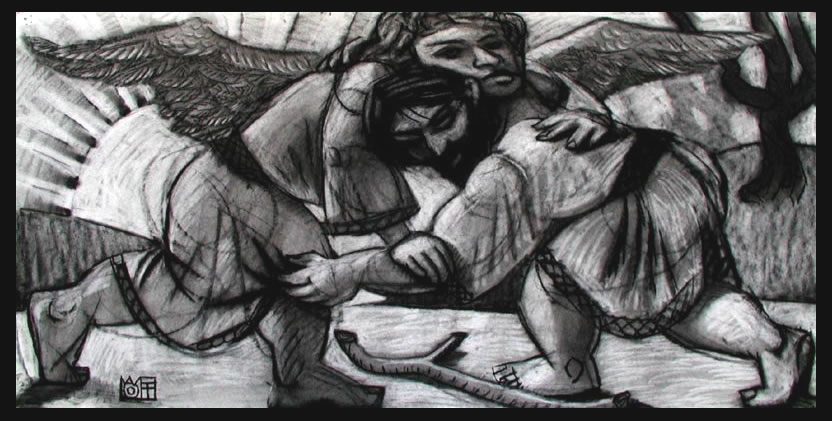Alexander Lang’s article, “Departure: Why I Left the Church” has created quite a reaction to the stressors of ministry today and the feeling of leaving the vocation of ministry altogether. The spectrum of reactions ranges from strongly affirming Lang’s experience and feelings to those critically interpreting them as a fundamental lack of love for ministry. My concern is that the conversation never moves past the defense of people’s opinions. How do we move from a conversation that restates the problem over and over to one that moves us collectively to walk with each other? Is there a more helpful framework to interpret the experiences and stressors pastors are facing today?
I believe moral injury is that framework. A response to trauma distinct from clinical post-traumatic stress disorder, or PTSD, moral injury has been extensively studied within the context of military service and more recently, the healthcare system and its frontline workers. While definitions for moral injury differ slightly across research domains, they convey the same basic premise. Moral injury, whether an experience of betrayal by an authority figure, feelings of guilt and shame over a violation of one’s own moral beliefs, or the recognition of flawed or misguided core values, is the result when one’s experience violates one’s sense of “what’s right.” Left unattended to, moral injury can manifest as PTSD-like symptoms, behavior that contradicts one’s previously intact morality, and Alexander Lang’s situation, removing oneself in order to prevent further trauma and suffering. Unfortunately, moral injury is often misdiagnosed as PTSD or burnout, and is misunderstood as “moral weakness” or a lack of resilience (and in Lang’s case, a lack of faith and devotion to God). This is why moral injury hasn’t gained wider reception beyond the military or healthcare.
Yet, moral injury is a distinct phenomenon, causing great suffering in those it affects. Addressing the effects of suffering has led to psychological, social, and spiritual interventions that specifically deal with moral injury. Known as “moral repair,” the goal of these interventions is to promote healing through restoring trust, alleviating feelings of guilt and shame, and redefining one’s deepest moral convictions. However, healing individuals is only part of the solution. There is another dimension to experiences like Lang’s and other pastors, and that is the role systemic realities play in causing moral injury. Admittedly, this dimension of moral injury is underdeveloped and subsequently, little is known on the best way to facilitate institutional and cultural change that mitigates the presence of moral injury. However, without a collective commitment to address and reform systemic structures that cause trauma, suffering, and harm, moral injury will remain. Without a willingness by institutional leaders, I believe unattended moral injury will be the primary cause of more pastors leaving and continued clergy shortages.
At the same time, I think the acknowledgement of moral injury and understanding how it manifests systemically within institutional cultures and structures can be a catalyst for a collective commitment to change. What if instead of judging pastors’ stress and thoughts of leaving as an ill-advised or unfortunate choice, we instead saw it as a sign there is something wrong with our models, expectations, and perceptions of pastoral ministry? What if we viewed the experience of pastors like Lang and others as trauma, causing harm to those called to serve?
Moral injury is a framework that can respond to these questions. It is a way to begin righting the unsustainable trajectory that pastoral ministry is caught in that leaves pastors in isolation and hopeless for the future of the Church and congregational ministry. It is a way of changing the long-standing, impossible standard of capitalistic growth and progress plaguing the Church that has nothing to do with the Gospel of Jesus Christ. More importantly, acknowledging and understanding moral injury may address the fact that many more pastors are considering leaving because it is no longer tenable to continue work that violates their vocation, values, and their call to serve God and God’s people. Perhaps that acknowledgement leads everyone, from institutional to congregational leaders, clergy and laypersons, to bear responsibility for the wellbeing and spirits of all God’s people in this time and place.


Leave a comment